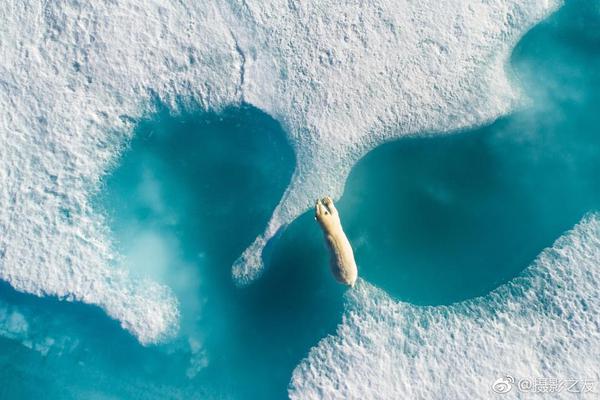It dwells miles down,Six Swedish Girls at a Pump (High Test Girls nearly freezing in perpetual darkness, equipped with numerous appendages to capture prey.
Deep Sea biologists found a new animal some 26,000 feet (7,902 meters) underwater in the ocean's "hadal zone," named for the Greek god of the underworld, Hades. These researchers lowered baited traps into the Atacama Trench off of Chile, and brought up four individuals of a species now called Dulcibella camanchaca.
"Dulcibella camanchaca is a fast-swimming predator that we named after 'darkness' in the languages of the peoples from the Andes region to signify the deep, dark ocean from where it predates," Johanna Weston, a hadal ecologist at the Woods Hole Oceanographic Institution who coauthored the discovery, said in a statement.
In the hadal zone, the deepest ocean realm, many critters depend on food sinking down from the more productive waters above. But Dulcibella camanchaca isn't a scavenger. The four-centimeter (1.5-inch) crustacean (an arthropod with a hard shell like a crab) captures smaller hadal crustaceans.
"This finding underlines the importance of continued deep-ocean exploration, particularly in Chile’s front yard," Carolina González, a researcher at the Instituto Milenio de Oceanografía who analyzed the species' DNA, said. "More discoveries are expected as we continue to study the Atacama Trench."
The research has been published in the science journal Systematics and Biodiversity.
 The location of the Dulcibella camanchaca discovery in the Atacama Trench. Credit: Johanna Weston / Woods Hole Oceanographic Institution
The location of the Dulcibella camanchaca discovery in the Atacama Trench. Credit: Johanna Weston / Woods Hole Oceanographic Institution  An illustration of the predatory Dulcibella camanchaca and its "raptorial appendages." Credit: Johanna Weston / Woods Hole Oceanographic Institution
An illustration of the predatory Dulcibella camanchaca and its "raptorial appendages." Credit: Johanna Weston / Woods Hole Oceanographic Institution Even in the deepest ocean, predators can flourish, such as a snailfish spotted at 27,349 feet (8,336 meters) down — the deepest fish ever observed. They are flabby, jelly-like fish that binge eat when they spot hadal prey, such as crustaceans.
Ocean research organizations are now vigilantly documenting and mapping the deep sea. Scientists want to shine a light — literally and figuratively — on what's down there. The implications of knowing are incalculable, particularly as deep sea mineral prospectors prepare to run tank-like industrial equipment across parts of the seafloor. For example, research expeditions have found that ocean life carries great potential for novel medicines. "Systematic searches for new drugs have shown that marine invertebrates produce more antibiotic, anti-cancer, and anti-inflammatory substances than any group of terrestrial organisms," notes the National Oceanic and Atmospheric Administration.
Topics Animals
(Editor: {typename type="name"/})
 Chiefs vs. Texans 2025 livestream: Watch NFL Playoffs for free
Chiefs vs. Texans 2025 livestream: Watch NFL Playoffs for free
 Best headphones deal: Save $71.99 on Sony WH
Best headphones deal: Save $71.99 on Sony WH
 Today's Hurdle hints and answers for March 18, 2025
Today's Hurdle hints and answers for March 18, 2025
 How to protect your mental health while using dating apps
How to protect your mental health while using dating apps
 Nishioka vs. Alcaraz 2025 livestream: Watch Australian Open for free
Nishioka vs. Alcaraz 2025 livestream: Watch Australian Open for free
The Onion has been denied bid to buy Alex Jones' InfoWars
 A federal bankruptcy judge has rejected The Onion’s unexpected effort to acquire the conspirac
...[Details]
A federal bankruptcy judge has rejected The Onion’s unexpected effort to acquire the conspirac
...[Details]
Why there's no such thing as being 'very online' anymore
 There was once a time when memes and internet-born jokes were a novelty enjoyed by relatively few pe
...[Details]
There was once a time when memes and internet-born jokes were a novelty enjoyed by relatively few pe
...[Details]
Tesla is somehow missing $1.4 billion
 Falling stock prices, plummeting car sales, protests, vandalism – it's all just another day in
...[Details]
Falling stock prices, plummeting car sales, protests, vandalism – it's all just another day in
...[Details]
 SAVE $303: As of March 20, the LG 65-inch C3 OLED 4K Smart TV is available for $1,196.99 at Amazon.
...[Details]
SAVE $303: As of March 20, the LG 65-inch C3 OLED 4K Smart TV is available for $1,196.99 at Amazon.
...[Details]
Miami Heat vs. Golden State Warriors 2025 livestream: Watch NBA online
 TL;DR:Live stream Miami Heat vs. Golden State Warriors in the NBA with FuboTV, Sling TV, or YouTube
...[Details]
TL;DR:Live stream Miami Heat vs. Golden State Warriors in the NBA with FuboTV, Sling TV, or YouTube
...[Details]
 TL;DR:The best eSIM for Ireland is Saily. Save 5% on Saily eSIM data plans with the exclusive coupon
...[Details]
TL;DR:The best eSIM for Ireland is Saily. Save 5% on Saily eSIM data plans with the exclusive coupon
...[Details]
JBL Go 3 speaker deal: $29.95 at Amazon
 SAVE $10: As of March 19, you can get the JBL Go 3 portable mini Bluetooth speaker for just $29.95 a
...[Details]
SAVE $10: As of March 19, you can get the JBL Go 3 portable mini Bluetooth speaker for just $29.95 a
...[Details]
 UPDATE: Mar. 18, 2025, 4:00 p.m. EDT Bluesky has restocked its "A WORLD WITHOUT CAESARS" shirtin siz
...[Details]
UPDATE: Mar. 18, 2025, 4:00 p.m. EDT Bluesky has restocked its "A WORLD WITHOUT CAESARS" shirtin siz
...[Details]
Best video game deal: Get Super Mario Bros. Wonder for $42.99 at Woot
 SAVE $17: As of Dec. 17, get Super Mario Bros. Wonderfor Nintendo Switch for just $42.99 at Woot, do
...[Details]
SAVE $17: As of Dec. 17, get Super Mario Bros. Wonderfor Nintendo Switch for just $42.99 at Woot, do
...[Details]
LinkedIn launches ‘Zip,’ a brain
 LinkedIn is expanding its casual gaming lineup with Zip, a new puzzle designed to challenge problem-
...[Details]
LinkedIn is expanding its casual gaming lineup with Zip, a new puzzle designed to challenge problem-
...[Details]
South Carolina vs. Illinois football livestreams: kickoff time, streaming deals, and more

Elon Musk's DOGE is breaking things it can't fix, warn IT experts

接受PR>=1、BR>=1,流量相当,内容相关类链接。